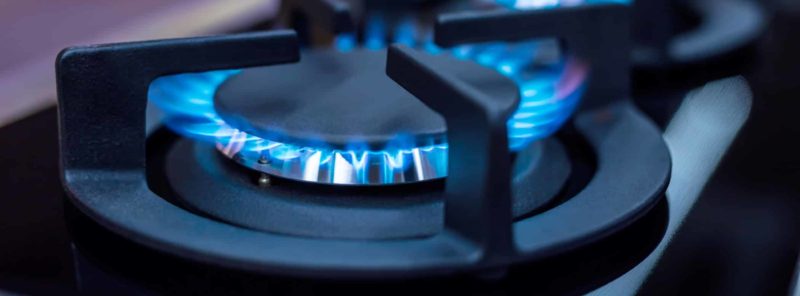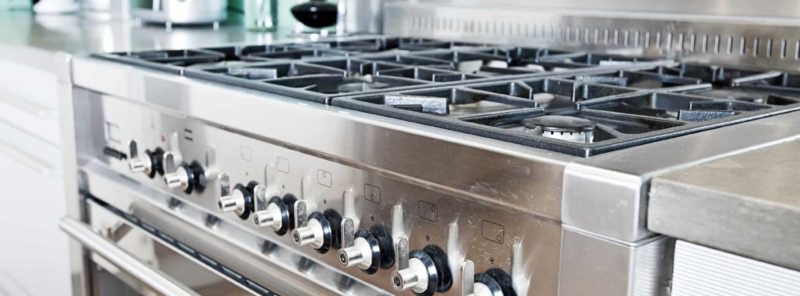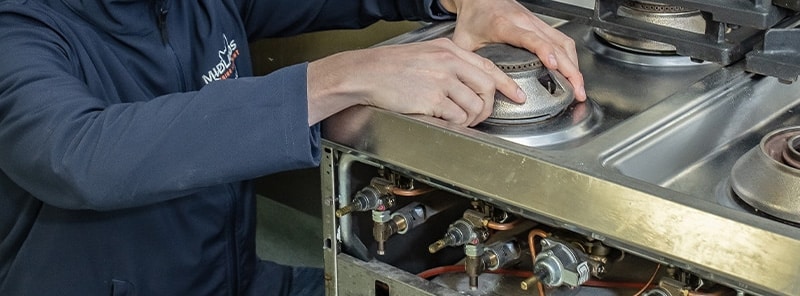Commercial Kitchen Gas Appliances Buying Guide

Why use gas in a commercial kitchen?
When your kitchen is in constant demand, you need reliable equipment that can keep up. Gas cookers and hobs are a popular choice for multiple reasons:
They heat up, quick
they’re a lot faster than electric and make cooking easier for your staff running a busy kitchen.
More control
chefs can easily control the temperature, ensuring consistency and reducing the chance of food burning.
Consistent heat
an even spread of heat means no hot spots and food is cooked thoroughly.
They’re economical
they’re considered more cost-effective to run, and you can limit the amount of energy wasted by controlling the heat.
No electricity needed
most models don’t need an electrical point, which is ideal for older or rural locations.

Should I use natural or LPG gas?
These are the two types of gas most commonly used in commercial kitchens within the UK. They both have their pros and cons, but it all comes down to what’s best for you: are you in a permanent location or mobile, where are your utility mains, and what are your kitchen’s needs?
Natural gas facts
- Also known as main gas
- You must pay to be connected, even when not in use
- You’re permanently connected to a gas supply
- No deliveries of gas supplies are needed
- A common choice in urban areas
- No need for storage
- Considered the more economical option
LPG gas facts
- Also known as Liquefied Petroleum Gas
- Used for mobile catering or where mains gas isn’t available.
- Reliable supply (no risks of being shut off)
- Higher energy content – less gas is used for the same heat
- A portable option
- Supplied in large canisters
- It does need to be stored safely
- You’ll need to schedule regular deliveries

Planning your gas appliance installation
When it comes to planning and installing your commercial kitchen gas appliance, there are 4 key steps to follow:
Choosing the right appliance
- Do your research – a big investment needs to be the right one, so check the specifications, measurements and costs match your requirements.
- Consider your kitchen – think about the size of your kitchen, the available space and who will be using it. These factors will influence your choice.
- What’s on your menu? – do you need something that’ll heat quickly, or something more economical? Understanding what you’re cooking will help you decide.
Are your premises suitable?
- Measure the space – a big investment needs to be the right one, so check the specifications, measurements and costs match your requirements.
- Check the location – gas appliances need to be within 1m of mains supplies but also consider the space in front, making sure the doors can open safely.
- Delivery restrictions – before ordering, check your appliance will fit through doors and hallways. Remember it’ll have packaging too.
- Essential extraction – this ensures your kitchen remains safe and comfortable and needs to be near your appliance so it can be installed correctly.
- Gas interlock systems – indoor gas appliances must have these connected to your extraction as a backup in case your extraction fails.
- Access to water supply – some models, such as those with steamers, also need to be within 1m of a water main.
- Check your hose – not all models come with gas hoses, so you need to ensure yours conform to British Standard BS699.
- Have a site survey – if you’re unsure of anything, ask a professional engineer to assess your kitchen and make any recommendations.
Be Ready for Delivery
- Free up some space – most units are kerbside delivery only, so you need to make sure there’s room for the delivery van.
- Check the delivery – before signing, look at the unit for any concerning signs. If there’s anything, report to the driver straight away.
- Extra help – these are heavy appliances and will require many hands to help move it to wherever it needs to go.
- Remove packaging – once you’re in your location, carefully remove and dispose of the rubbish correctly.
- Check your appliance – before installing, look at your appliance for any concerning signs. Any faults or damage should be reported straight away.
- Prepare for installation – you should always use a qualified engineer who is Gas Safety Registered, to ensure your appliance is installed correctly.
Professional Installation
- Same-day installation – to avoid any delays, try to book your engineer on the same day as delivery.
- Review the requirements – engineers will check the job with you before anything is moved or installed.
- Check the unit – it’s better to be safe than sorry, so your engineer should check the appliance again before installing it.
- Testing – once installed, they’ll be some tests carried out to ensure it’s functioning correctly and in line with gas regulations.
- Gas safety certificate – a certificate and important documentation will be issued to you which you’ll need to keep hold of.
- Removing the old one – some companies will do this for you, if you choose to do this yourself, make sure it’s disposed of safely and correctly.
Speak to the experts
There’s a lot that goes into finding the right commercial kitchen gas appliance. If you’re unsure, our team of experts can support you from planning your kitchen to installing and maintaining your equipment. Get in touch to find out more.

Share this article: